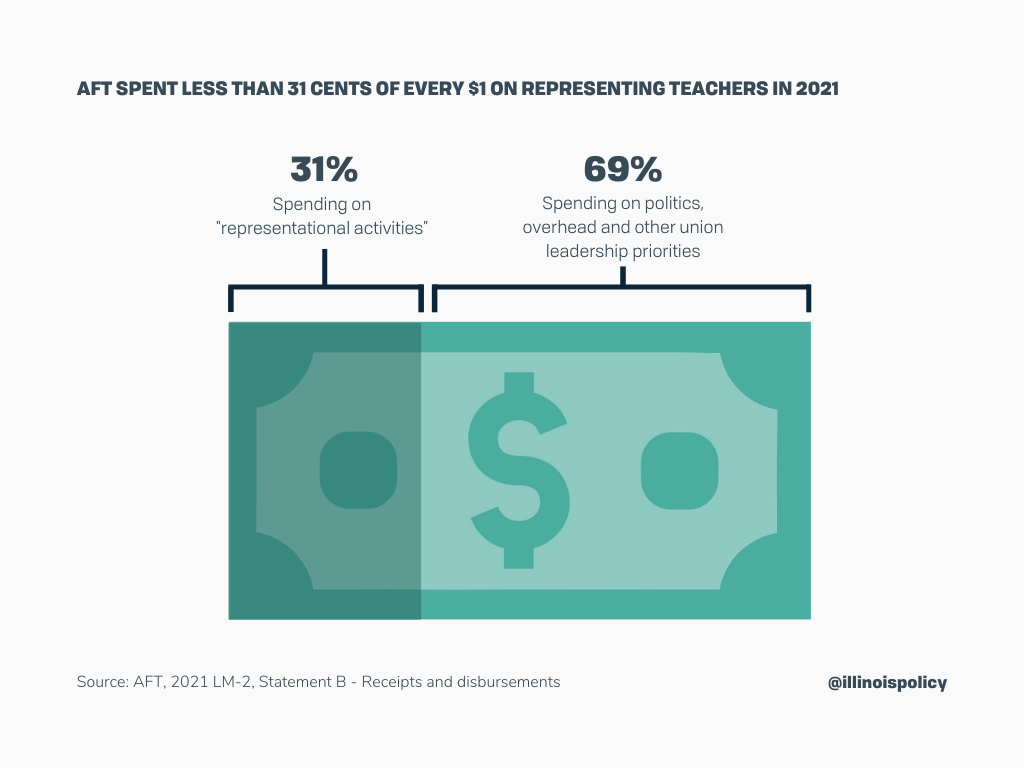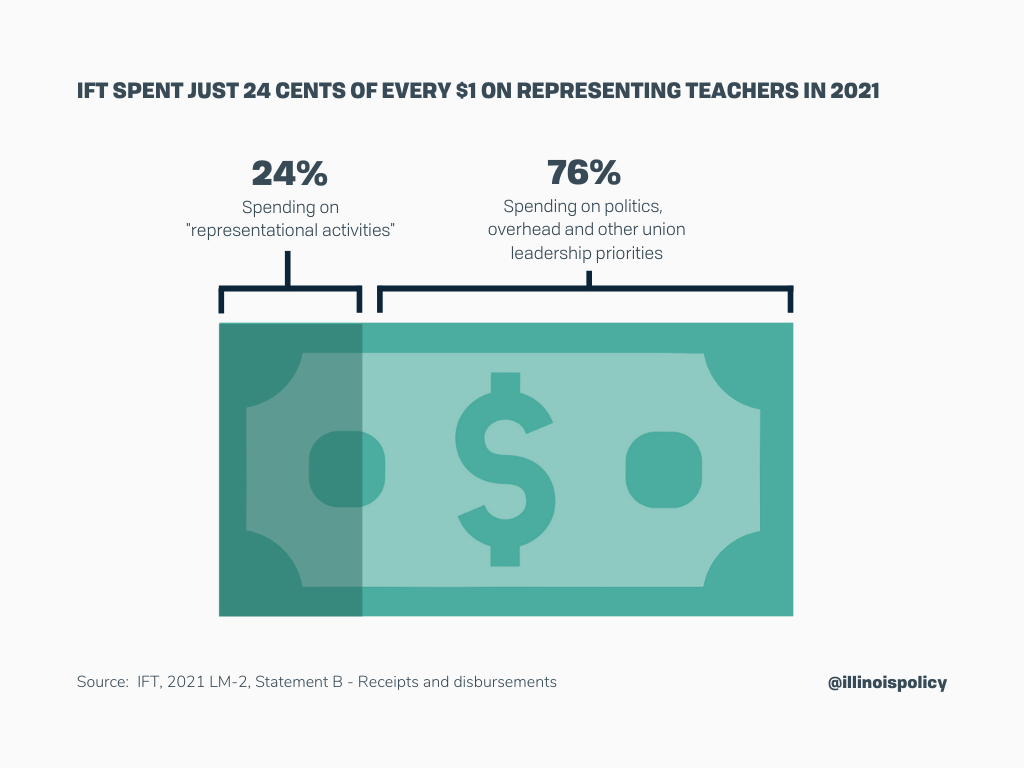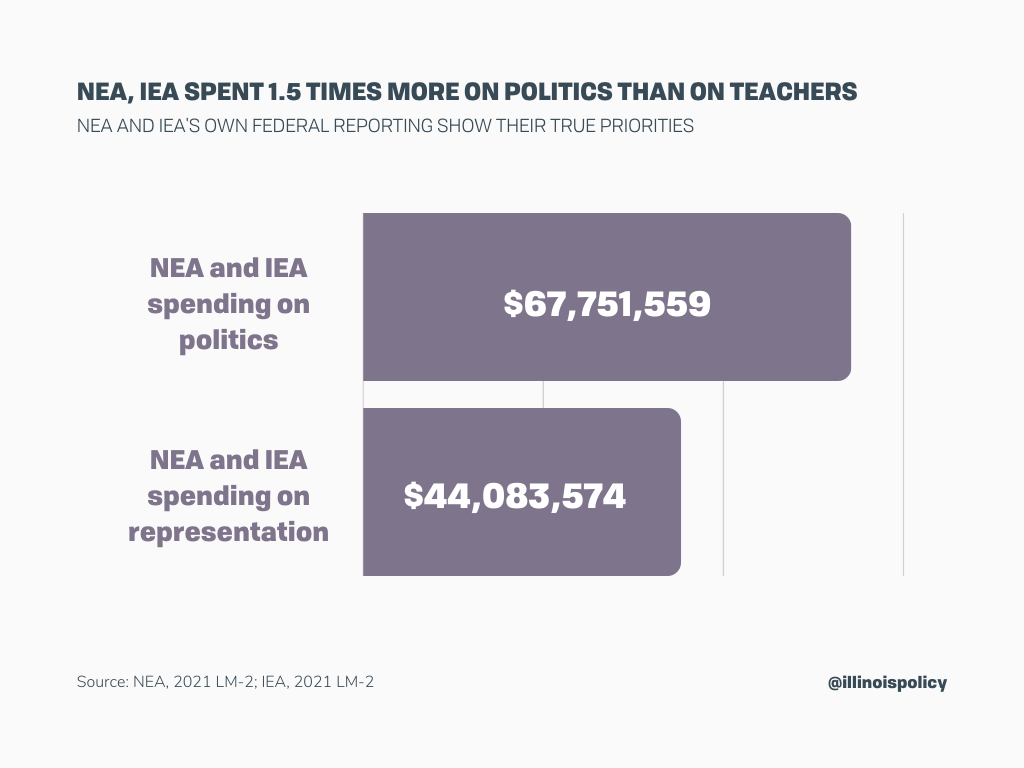Ep. 49: More union money floods Illinois politics
Illinois unions members give hundreds of dollars a year to union dues. But most of that money is spent on politics – not representing workers’ interests or protecting them. Mailee Smith follows the money. She joins the Policy Shop to show where government union money goes and why Amendment 1 would harm all Illinoisans.
This installment of The Policy Shop is brought to you by Staff Attorney & Director of Labor Policy Mailee Smith.
Illinois teachers each spend hundreds of dollars a year in union dues. But most of that money doesn’t stay with their local bargaining units.
Instead, their dues money flows up the chain to the state and national affiliates, such as the Illinois Federation of Teachers (IFT), the American Federation of Teachers (AFT), the Illinois Education Association (IEA) and the National Education Association (NEA).
So where does dues money go? The majority is spent on politics, administration and other leadership priorities – and not on representing teachers.
Mismanagement. Both NEA and IEA prioritize spending on leadership salaries over representing members. Both contribute enormous amounts to political causes that may not align with their members’ views. IEA and NEA spent nearly $700 million in 2021. Yet only 6% of that spending was on representing workers – the core purpose of a union.
AFT’s federal report shows it spent over $241.7 million in 2021. Yet not even 31% of that was on representing workers. The rest was spent on administration, politics and other leadership priorities.
IFT’s numbers aren’t much better with only 24% spent on representation.
Teachers are leaving the unions. Union politics are driving members away. IFT’s failure to prioritize representing teachers across the state may be why it is losing so many members. Since 2017, the union has seen a nearly 18% drop in union membership. IFT spent 190 times more on Chicago-area teachers than it did on teachers south of Interstate 80 in 2021.
Here are two Chicago teachers’ decisions to leave their union.
In 2019, Ifeoma Nkemdi crossed the picket line during a Chicago Teachers Union strike to be with her students. It was at that moment she realized her union’s values were in conflict with her personal values, and that the union’s political agenda was hurting the kids and families she serves. Under the pressure of an intense, and at times vulgar, backlash from union leadership, Ifeoma chose not to back down. After years of being an active CTU member, she decided to formally opt out of her union.
Joe Ocol is another CPS teacher who crossed the picket line to be with his students.
“I have nothing against the union, but I have something against people who use the union for a political agenda for their own self-interest, because I feel that this has something to do with political motives. You pay the union and yet every time there’s an election, they endorse a candidate you may or may not agree with. They use your union dues to support the candidate by donating from the union coffers. The union should be apolitical, and their concern should be for the kids.”
But the union IS political.
Amendment 1 is all about giving political power to government unions. What kinds of politics are unions spending money on in Illinois? $4 million in support of ads for Amendment 1. Union leaders are calling Amendment 1 the “Workers’ Rights Amendment,” but Amendment 1 has nothing to do with quality of life for Illinois’ working families. Instead, Amendment 1 would hurt the majority of Illinoisans because it would guarantee the cost of government goes up – specifically, it would hurt homeowners, who would experience ongoing property tax hikes. Increasing the cost of homeownership will make it harder for people to afford a home, pricing out would-be buyers while also guaranteeing that rent goes up, as landlords will have to make up for increased property tax costs. On top of this, Amendment 1 guarantees government union leaders more power than unions in any other state, including more rights than voters and the ability to override 350 state laws.
Union leadership is all about politics, and the agenda they’re pursuing has less to do with the common good and more to do with consolidating special interest power.



